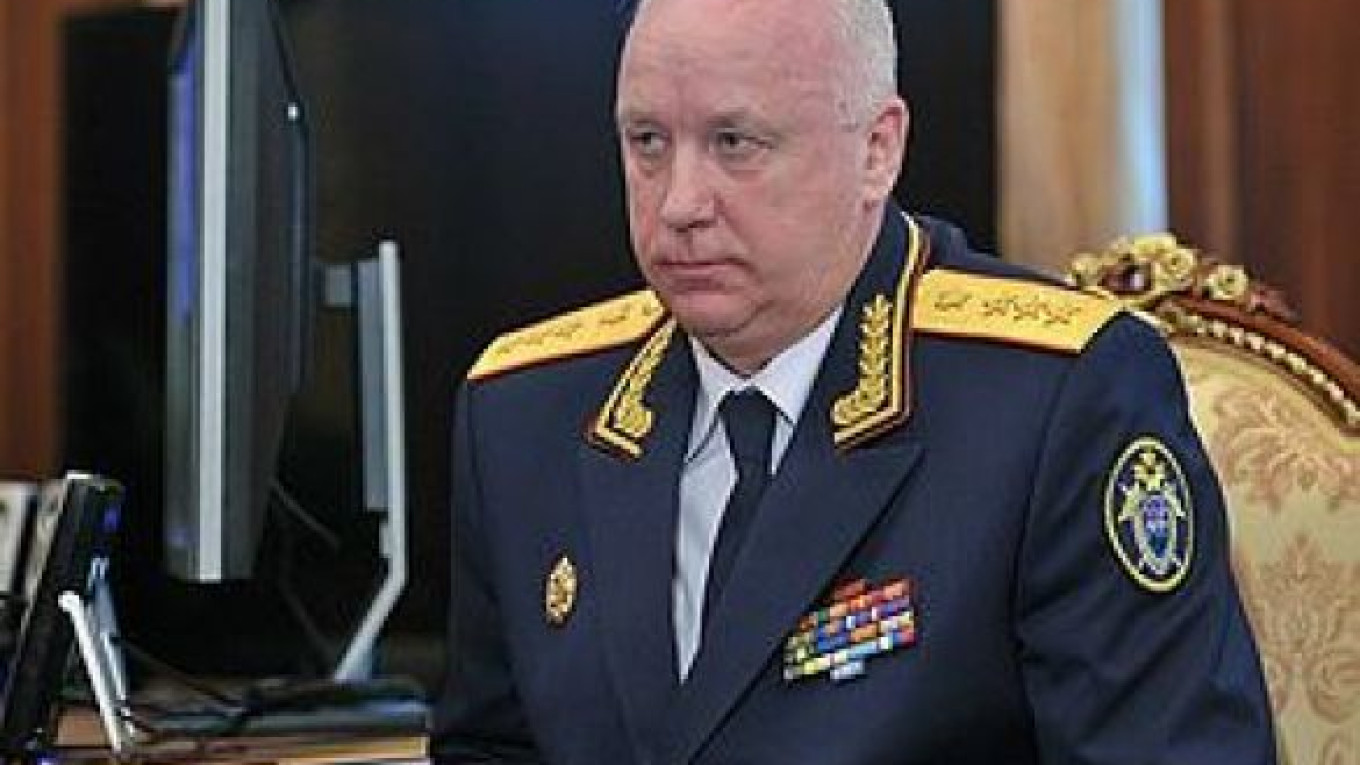The existence of a powerful pro-pedophilia lobby within the government explains why adults who sexually abuse children tend to receive light sentences or escape justice altogether, Investigative Committee chief Alexander Bastrykin said Tuesday, Interfax reported.
"There's such strong resistance in some arms of the government, some lobby or mafia that allows many child-abusers to receive a minimal sentence and even avoid justice," Bastrykin said at a meeting of the Kremlin's council for the interests of children and families.
As shocking as it sounds, the announcement — not the first such claim by a senior official — did not surprise experts, who said weak laws and enforcement were difficult to explain otherwise.
"Bastrykin's statement, for me, is in some sense a demonstration that the Investigative Committee and the government is serious about solving this problem," Boris Altshuler, head of Rights of the Child, a watchdog, said by telephone on Tuesday.
Altshuler sees evidence of the lobby in lawmakers' historical slowness to pass tougher penalties for child sex abuse, approved last year with great effort. And journalists have long warned of law enforcement turning a blind eye to online child pornography and pedophile cruising spots, he said.
"We've always been shocked. Why don't they pass a tougher law against pedophiles? Presidents Medvedev and Putin have proposed bills, but the State Duma has always delayed them," he said.
Other senior officials, including children's ombudsman Pavel Astakhov and Deputy Yelena Mizulina, head of the Duma's Committee on Family, Women and Children, have made similar claims about nefarious, pro-pedophile forces within the .
"Could there be a pedophile lobby that simply finances [opposition to the bills] and opposes their passage? I think it's not far from the truth," Astakhov said in 2010, Interfax .
Lilia Ovcharova, a professor at the Higher School of Economics who worked on the government's current roadmap for children's policy, also said Russia's "relatively liberal" laws against child sex crimes made it tempting to hypothesize that somebody is holding back tougher ones.
"Laws like the foreign agents law are passed very quickly in our country, but we don't pass a law introducing adequate punishment for pedophiles," she said by telephone on Tuesday, referring to a controversial law that requires some non-state organizations to brand themselves "foreign agents."
And it isn't clear why people accused of pedophilia often receive minimal sentences. Either there actually is a lobby or organized pro-pedophile community, whose members support one another, or the light sentencing is a product of widespread corruption in the judicial system, she said.
"People who commit such crimes know to some extent that they're going to commit them, so they could make preparations ahead of time to secure a lighter sentence," she said.
More than 1,200 sexual crimes against children were recorded in 2012, resulting in 160 deaths and 450 serious injuries, Bastrykin said Tuesday.
Contact the author at [email protected]
A Message from The Moscow Times:
Dear readers,
We are facing unprecedented challenges. Russia's Prosecutor General's Office has designated The Moscow Times as an "undesirable" organization, criminalizing our work and putting our staff at risk of prosecution. This follows our earlier unjust labeling as a "foreign agent."
These actions are direct attempts to silence independent journalism in Russia. The authorities claim our work "discredits the decisions of the Russian leadership." We see things differently: we strive to provide accurate, unbiased reporting on Russia.
We, the journalists of The Moscow Times, refuse to be silenced. But to continue our work, we need your help.
Your support, no matter how small, makes a world of difference. If you can, please support us monthly starting from just $2. It's quick to set up, and every contribution makes a significant impact.
By supporting The Moscow Times, you're defending open, independent journalism in the face of repression. Thank you for standing with us.
Remind me later.


